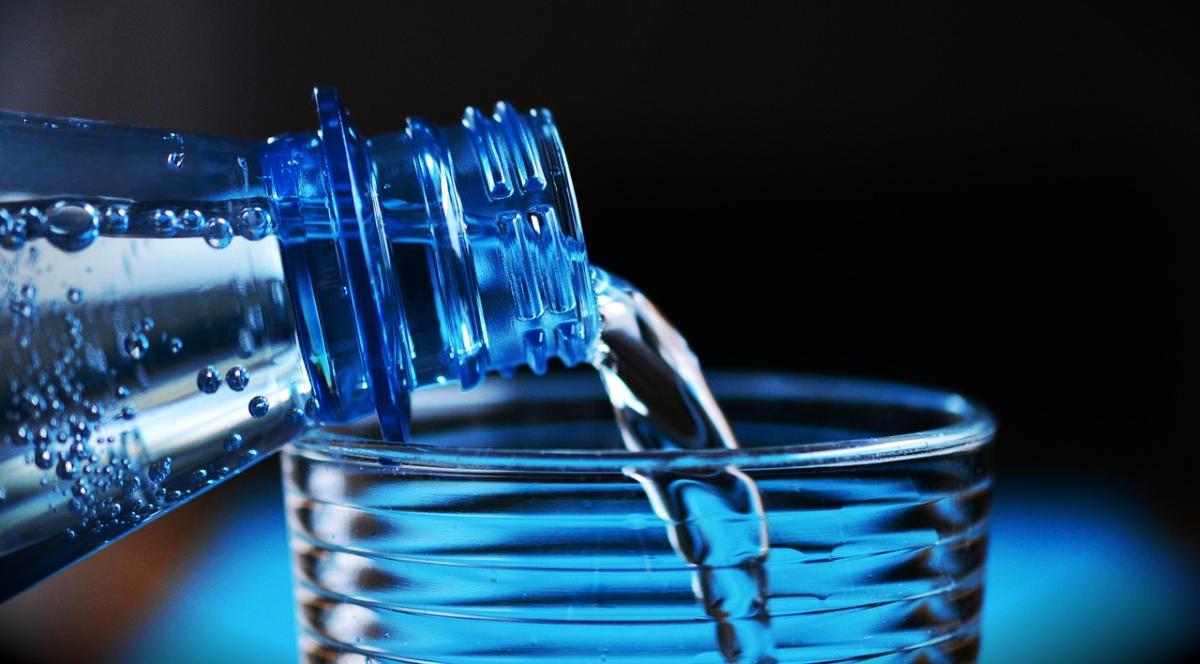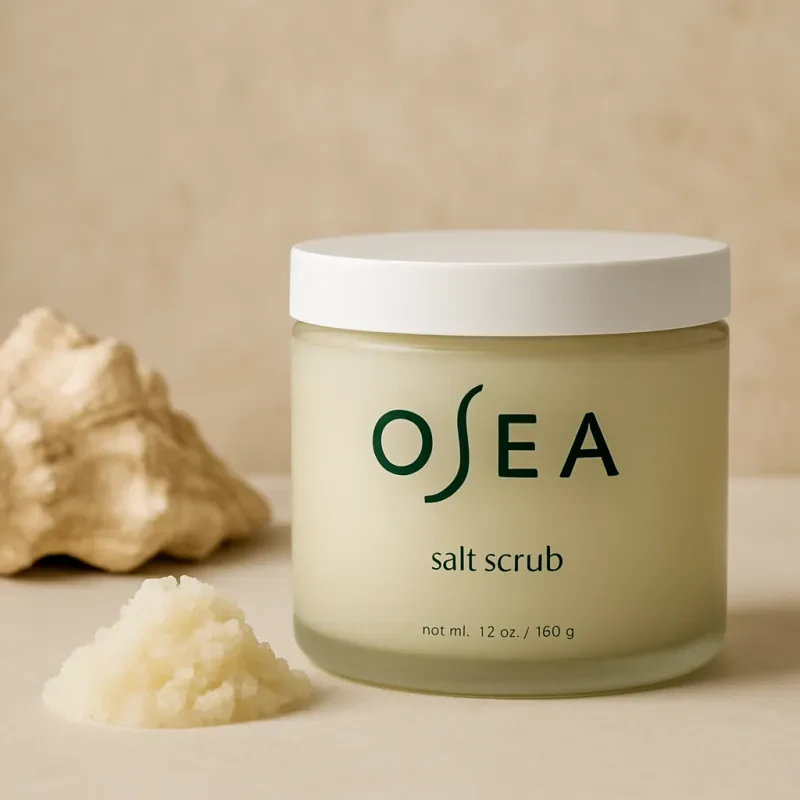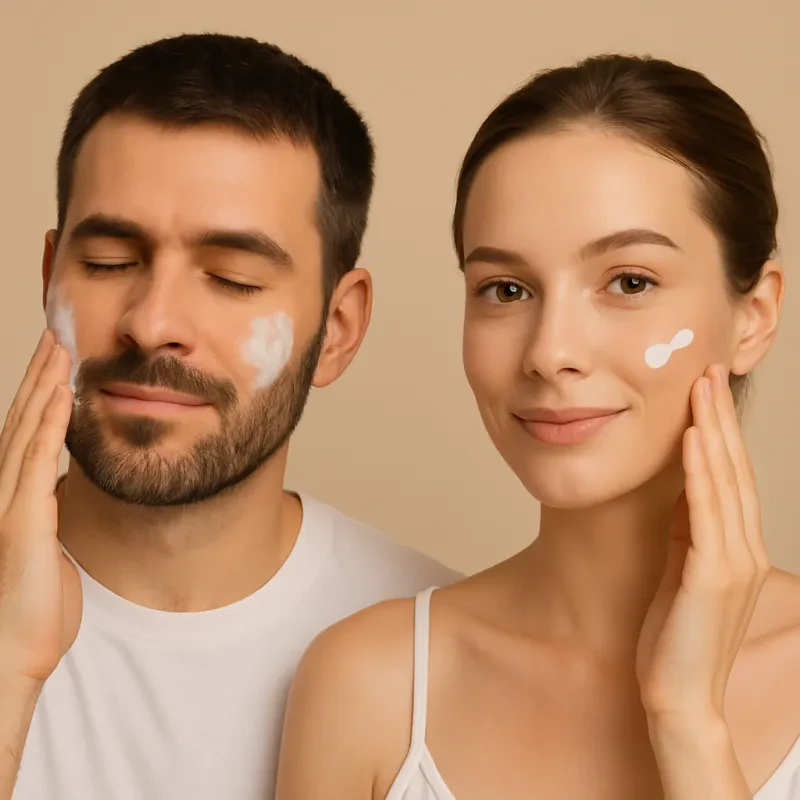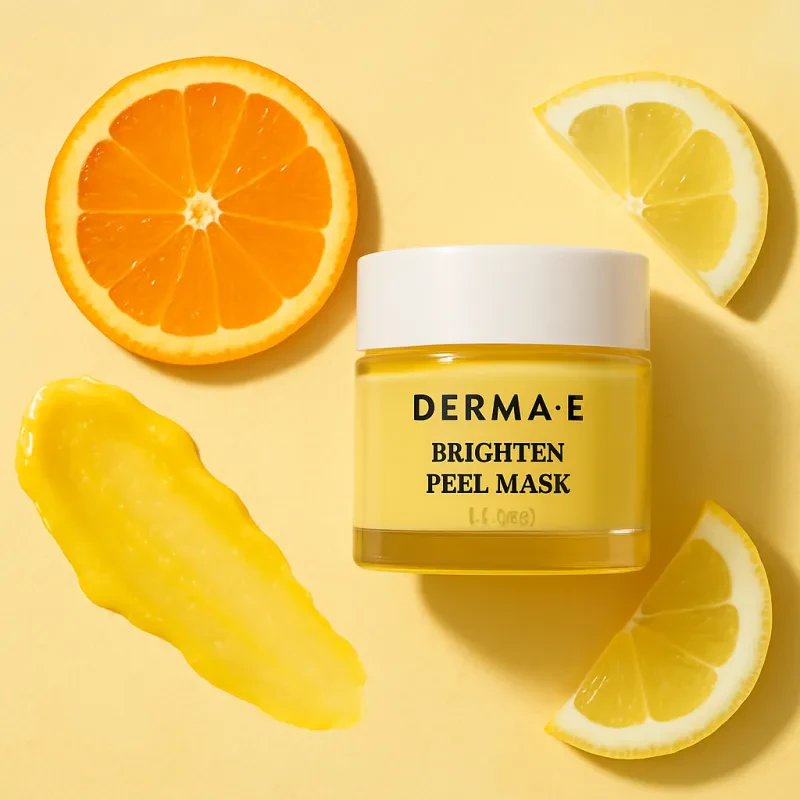Introduction: The Importance of Hydration
Hydration is a fundamental aspect of maintaining overall health, impacting everything from organ function to energy levels. Among the most visibly affected organs by hydration is the skin, the body's largest organ. Water is essential for the skin's health and appearance as it contributes to its elasticity, suppleness, and resilience. Proper hydration helps in the effective functioning of skin cells, fostering a healthy, radiant complexion.
Dehydration, on the other hand, can result in a dull and tired appearance, emphasizing fine lines and wrinkles. This is particularly concerning for those seeking anti-aging solutions. Additionally, adequate water intake can aid in acne prevention by helping to flush out toxins and maintain a balanced oil production in skin pores. Another compelling reason people prioritize hydration is its role in achieving a radiant and youthful glow, which is why it's often touted in various skincare regimens.
The skin's surface layer, the epidermis, relies heavily on moisture to maintain its barrier function, protecting against external stressors such as bacteria and pollutants. When the body is well-hydrated, the skin is better equipped to perform these protective duties. Therefore, integrating hydration into your skincare routine isn't merely about temporary fixes but about supporting the skin's natural processes.
Understanding the crucial role that hydration plays in skin health can transform how one perceives skincare. The journey to radiant skin is not solely dependent on topical treatments but is significantly influenced by the body's internal hydration levels. By emphasizing water intake, individuals can address multiple skin concerns while promoting overall well-being.
How Water Supports Skin Structure
A robust relationship exists between proper hydration and the health of our skin, a critical component of which is the skin structure. At the cellular level, water is indispensable for maintaining skin's elasticity and firmness, significantly through its role in collagen production. Collagen, a vital protein found in the dermis layer of the skin, relies on water to maintain its shape and function. Water molecules interact with collagen fibers, supporting their tensile strength and preventing the breakdown that leads to sagging and wrinkles. Thus, sufficient water intake is fundamental in fostering a resilient skin structure.
Further strengthening the skin's resilience is water's impact on the skin barrier function. The epidermis, or outermost layer of the skin, comprises lipid cells that form a protective barrier. This barrier's primary purpose is to retain moisture while simultaneously repelling toxins, pollutants, and harmful microorganisms. Adequate hydration ensures these lipid cells remain plump and well-structured, enhancing the epidermal barrier's efficiency. When water intake is insufficient, the lipid cells can shrink, leading to a compromised barrier that becomes susceptible to external aggressors, resulting in dry, flaky, and irritated skin.
Moreover, water intake influences the skin’s overall hydration levels, contributing to its suppleness and smoothness. Dehydrated skin often exhibits signs of dryness, tightness, and reduced elasticity, making it prone to cracking and fine lines. By maintaining a consistent intake of water, the skin is better equipped to regulate its temperature and maintain an optimal pH balance, which are crucial for both barrier function and overall cellular performance.
In summary, adequate hydration is paramount for maintaining skin structure and function. By supporting collagen production and reinforcing the skin's barrier, water plays an essential role in promoting radiant, resilient skin. For anyone keen on optimizing their skincare regimen, considering hydration, alongside topical treatments, is crucial.
```html
Detoxification: Flushing Out Toxins
Drinking an adequate amount of water is crucial for the body's natural detoxification processes. Water serves as the primary medium through which toxins are flushed out of the body. Key organs such as the liver and kidneys rely on sufficient hydration to function optimally, filtering out impurities and waste products from the bloodstream. By supporting these organs, water consumption helps rid the body of excess toxins that could manifest in skin-related issues like acne, inflammation, and dullness.
When the body is dehydrated, it is unable to effectively excrete waste through urine. This can lead to an accumulation of toxins that may show up as skin problems. For instance, insufficient hydration can cause the skin to appear dry and less resilient, which in turn makes it more prone to issues like acne and irritation. On the contrary, well-hydrated skin tends to be more supple, resilient, and less prone to acne breakouts.
Improved hydration translates into clearer, more radiant skin. By regularly drinking water, you help maintain a balanced moisture level, enabling your skin to renew itself more effectively. This natural process aids in reducing blemishes and promoting a youthful glow. Examples can be seen in those who increase their water intake over a period of several weeks, often reporting fewer breakouts, reduced puffiness, and a more even skin tone.
Therefore, integrating a consistent hydration habit into your daily routine can significantly enhance your skincare regimen. It's a simple yet powerful step towards achieving vibrant and healthy skin by supporting your body's intrinsic detoxification capabilities. Ensuring you drink enough water doesn't just benefit your skin but also contributes importantly to your overall well-being.
```
Moisture Balance: Combatting Dryness and Oiliness
Maintaining optimal moisture balance is crucial for achieving radiant skin, and one simple yet often overlooked method is through adequate hydration. Drinking sufficient water is a fundamental part of any skincare regimen that strives to establish and preserve the delicate balance between dryness and oiliness. Proper hydration supports the skin's ability to regulate its moisture levels naturally, mitigating common skin problems such as flakiness, tightness, and excess oil production.
Dehydration directly affects the skin by reducing its elasticity and impairing its ability to perform essential functions. When the skin lacks proper hydration, it compensates by producing more sebum, which can lead to an oily complexion. On the other hand, insufficient water intake can also manifest as dryness, resulting in a dull and parched appearance. Recognizing these signs can help in diagnosing and remedying dehydration-related skin issues.
Key indicators of skin dehydration include a rough texture, enhanced sensitivity, and visible fine lines. If the skin feels tight even after moisturizing, it is likely signaling that its hydration needs are not being met. Conversely, if an oily sheen persists despite using appropriate skincare products, the underlying issue may be insufficient water intake. Addressing these concerns by drinking an adequate amount of water each day can significantly improve skin texture, luminosity, and overall health.
To ensure that your skin remains hydrated and balanced, experts recommend drinking at least eight 8-ounce glasses of water daily. This practice not only aids in maintaining moisture equilibrium but also helps expel toxins that can lead to skin imbalances. Additionally, incorporating foods with high water content, such as fruits and vegetables, into your diet can further support hydration efforts.
By integrating consistent hydration into your skincare routine, you provide your skin with the nourishment it needs to combat both dryness and oiliness. Ultimately, this balance promotes a healthier, more radiant complexion, reinforcing the symbiotic relationship between internal hydration and external skincare.
Hydration and Anti-Aging Benefits
Adequate hydration plays an indispensable role in the fight against premature aging. The intake of sufficient amounts of water can significantly delay the appearance of visible signs of aging, including fine lines and wrinkles. Proper hydration serves as the foundation for maintaining the skin's elasticity and suppleness, which naturally diminishes with age.
One of the primary mechanisms through which hydration aids in combating aging is by promoting proper skin cell function. Hydrated skin cells are more resilient and capable of repairing themselves, which reduces the likelihood of age-related skin damage. Furthermore, water assists in maintaining the skin's natural moisture barrier, preventing dryness and flakiness that accentuate the appearance of fine lines.
Scientific studies corroborate the beneficial effects of hydration on skin aging. For instance, research published in the National Library of Medicine highlights that individuals who maintain optimal hydration levels exhibit fewer signs of aging. The study concludes that hydrated skin retains its youthful plumpness and firmness, which is often compromised due to water loss in aging skin.
Additionally, expert dermatologists underscore the importance of consistent water intake for younger-looking skin. Dr. Howard Murad, a renowned dermatologist, has often stated that "water is the most important nutrient for your skin." Consistent hydration ensures that essential nutrients reach the skin cells, promoting their renewal and longevity.
It's essential to incorporate a consistent water consumption habit into daily routines to maximize these anti-aging benefits. Drinking the recommended 8-10 glasses per day can lead to noticeable improvements in skin texture and appearance. By making hydration a priority, individuals can enjoy not only radiant but also ageless skin.
How Much Water Should You Drink?
Determining the exact amount of water necessary for optimal skin health can often be confusing, as individual requirements vary based on numerous factors including age, sex, climate, and physical activity level. Generally, a good guideline to follow is the "8x8" rule, which recommends drinking eight 8-ounce glasses of water per day, totaling about two liters or half a gallon. However, this standard guideline may not be sufficient or necessary for everyone.
For instance, individuals living in hotter climates or engaging in intense physical activities tend to lose more fluids through sweat and thus might require higher water intake to stay adequately hydrated. Similarly, older adults may need to consciously increase their water consumption as the sensation of thirst diminishes with age.
To tailor your hydration needs more precisely, it is essential to listen to your body. Regularly checking the color of your urine can be an effective method to gauge hydration levels. Ideally, well-hydrated individuals will have pale yellow urine, while dark yellow or amber-colored urine typically indicates dehydration.
Incorporating more water into your daily routine can be straightforward. Start your day with a glass of water, as rehydrating after a night of sleep is beneficial for overall health and can kickstart your metabolism. Carrying a reusable water bottle and setting periodic reminders to take a sip can also ensure consistent hydration throughout the day.
Additionally, the water content in foods should not be overlooked. Consuming fruits and vegetables with high water content, such as cucumbers, watermelon, and oranges, can contribute to your overall hydration levels. Herbal teas and broths are also valuable complementary sources of hydration.
While maintaining adequate hydration is crucial for radiant and healthy skin, it is essential to adapt these general recommendations to suit your specific lifestyle and body's unique needs.
Incorporating Water into Your Skincare Routine
Integrating proper hydration into your daily routine is crucial for maintaining radiant skin. Drinking water serves as the foundation for an effective skincare regimen, aiding in digestion, detoxification, and overall cellular function. To ensure that water is a core part of your skincare routine, it's essential to follow a few practical steps and strategies.
Start your day by drinking a glass of water first thing in the morning. This simple habit kick-starts your metabolism, flushes out toxins, and gives your body a much-needed hydration boost after hours of sleep. You can place a glass of water on your bedside table as a reminder, ensuring you begin your day with optimal hydration.
During the workday, set regular hydration breaks. Schedule them like any other important task. For example, aim to drink a glass of water every hour or whenever you finish a task. Having a reusable water bottle at your desk or workstation can serve as a visual cue and make it easier to remember these hydration breaks.
Incorporating water into other parts of your skincare routine can also be highly effective. Drink a glass of water while engaging in your morning skincare rituals, such as cleansing, toning, and moisturizing. Repeating this during your night-time skincare routine will not only promote hydration but also help in maintaining consistent habits.
To make the process more enjoyable and enticing, consider infusing your water with fruits and herbs. Adding slices of cucumber, lemon, or berries can enhance the taste without adding extra calories. Herbs like mint or basil can also provide refreshing flavors. Experiment with different combinations to find what suits your palate best.
By following these practical tips, you can seamlessly incorporate water into your skincare regimen, boosting hydration throughout the day and promoting healthier, more radiant skin.
Conclusion: Water as the Foundation of Healthy Skin
Throughout this exploration of the vital role hydration plays in skincare, we have underscored the indispensable connection between drinking water and achieving radiant, healthy skin. Prioritizing hydration can lead to visible improvements in skin texture, elasticity, and overall appearance, making water a fundamental component of any effective skincare regimen.
The benefits of drinking water extend far beyond superficial improvements. Proper hydration supports the skin's natural barrier function, promoting resilience against environmental aggressors and reducing the likelihood of skin conditions such as dryness, irritation, and breakouts. This reinforces the importance of a consistent and adequate water intake to nurture and maintain skin health.
Incorporating hydration into your daily routine is a straightforward yet powerful step toward achieving long-term skin vitality. By making a conscious effort to drink enough water, you not only support your skin's functionality but also enhance your overall well-being. Regular water consumption aids in digestion, circulation, and detoxification processes, all of which contribute to a healthier, more balanced body and, consequently, more radiant skin.
As you consider the multitude of skincare products and treatments available, remember that the foundation of any effective regimen begins with the basics. Drinking water consistently and in adequate amounts serves as a cornerstone of true skin health. Embrace this simple, accessible habit as a holistic approach to skincare, recognizing that the benefits extend beyond mere aesthetics to encompass broader aspects of your physical and mental well-being.
Ultimately, fostering good hydration habits is a timeless investment in your skin and overall health. By prioritizing water as an essential part of your skincare routine, you pave the way for enduring beauty and wellness. Here’s to the transformative power of hydration for radiant, healthy skin that glows from within.



